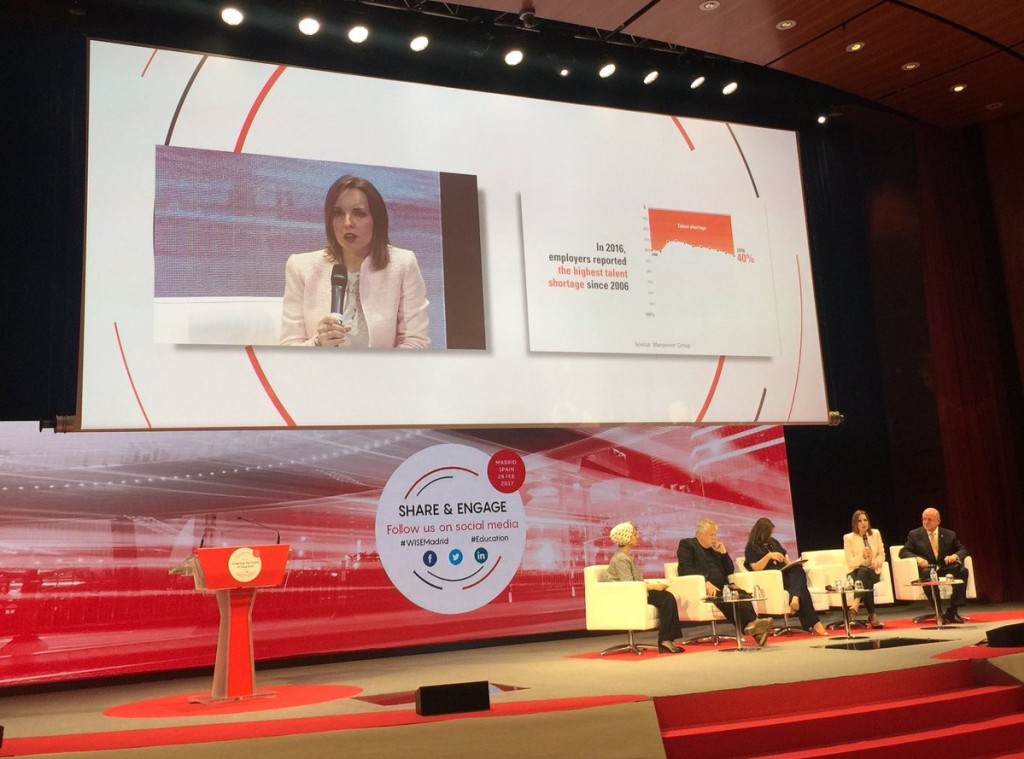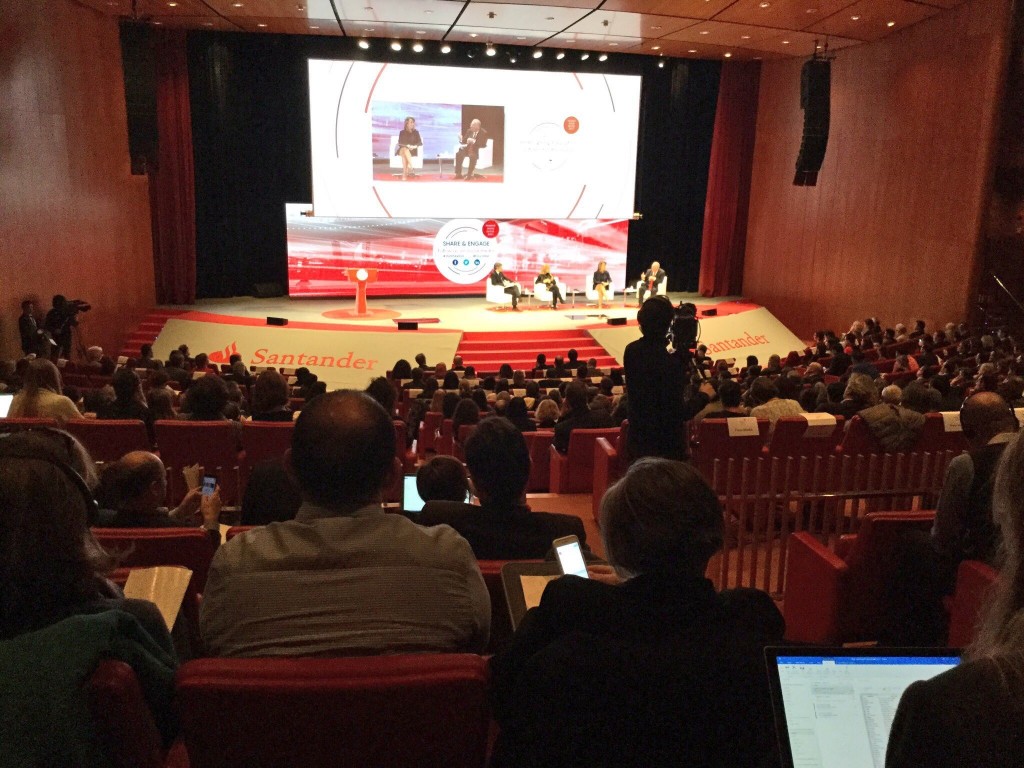Long lasting changes for an Education System constantly evolving

Education has to respond to the rapid changes of society providing the training needed for the 21st century. Radical changes in perspective, pedagogy and educational technology are mandatory to accomplish that goal. These ideas are among the conclusions of WISE Madrid, the Qatari Foundation forum for Education to which the Vice-chancellorship for Knowledge Transfer and Technology (http://transfer.unir.net)
World leaders, entrepreneurs, experts, practitioners and policy makers have gathered at Madrid to discuss the challenges of the Future of Education. The Digital Age and the Fourth Industrial Revolution are changing dramatically the rules, so redesign, rethink and reimagine education.
«There is no excuse, technology needs to enable people to study whatever they want, and provide life-long learning», has remarked Ana María Botín, Executive Chairman of Santander Group, who hosted the meeting. Following the same line, Sheika Hind bint Hamad al-Thani, Vice-Chairperson and CEO of Qatar Foundation, has highlighted that “we need long-lasting changes in the Education ecosystem in a rapidly evolving society”.
Some experts consider that there is a wall between actual education and future education. For example, Marc Prensky, Founder of the Global Future Education Foundation, defends that “we have to look at the ends of Education to foster effective thinking, effective action and effective relationships that are the long-life skills that kids will need in the future”.
Redesigning Education Systems for the Future
In the panel discussion, there was a kind of consensus around the necessity to design the new system of education around projects, problem resolving, entrepreneurship and participatory education to bring the training demanded by the market.
According to Sandy Speicher from Ideo, our system is designed “to kill creativity”. And this ability is “a mystery for us. So, we have to develop indicators, measures, in order to integrate it in the process”. Focus on teachers is also crucial “Changing teachers practice is difficult, we need micro reforms, a new set of methods for them”, has underlined Asmaa Alfadala, from WISE. Vicky Colbert, Founder of Escuela Nueva Educación, from Colombia has explained the special environment of Education in Colombia, with a peace process ongoing and a lack of resources. “For us, is very important to improve literacy skills and teaching training with new methods”.
21st-century skills: ensuring relevance for Higher Education in a Changing World
Between the conclusions is important to highlight the importance of having one unified definition, or at most a unique set of skills for the 21st century. A very complex tax due to the different visions across the world, levels of Education and technological adoption. “We need advisors to write recommendations for member states about digital skills”, has recognized Martina Dlabajová, Member of European Parliament.
But experts thinks that ethics, arts and entrepreneurship must have a role. For example, Fernando Reimers, professor of International Education at Harvard University has explained that “the mission of Higher Education must be extended to prevent populism, for example”. In his opinion, values of the French Revolution such as freedom and equity has to drive action in the universities to foster democratic citizenship and global citizenship.
Finally, experts have highlighted the advance of Human Rights or the Sustainable Development goals are very interesting and motivational principles for students to take action in his communities. A resource that can be used by teachers to harness the curiosity of the students in their pedagogical projects.
Author:
Carlos Fernández-Alameda
Science Journalist
More info: research.ucc(at)unir.net

